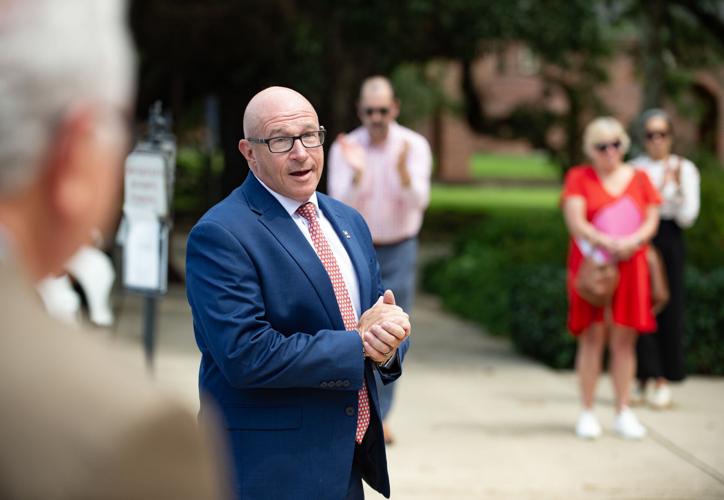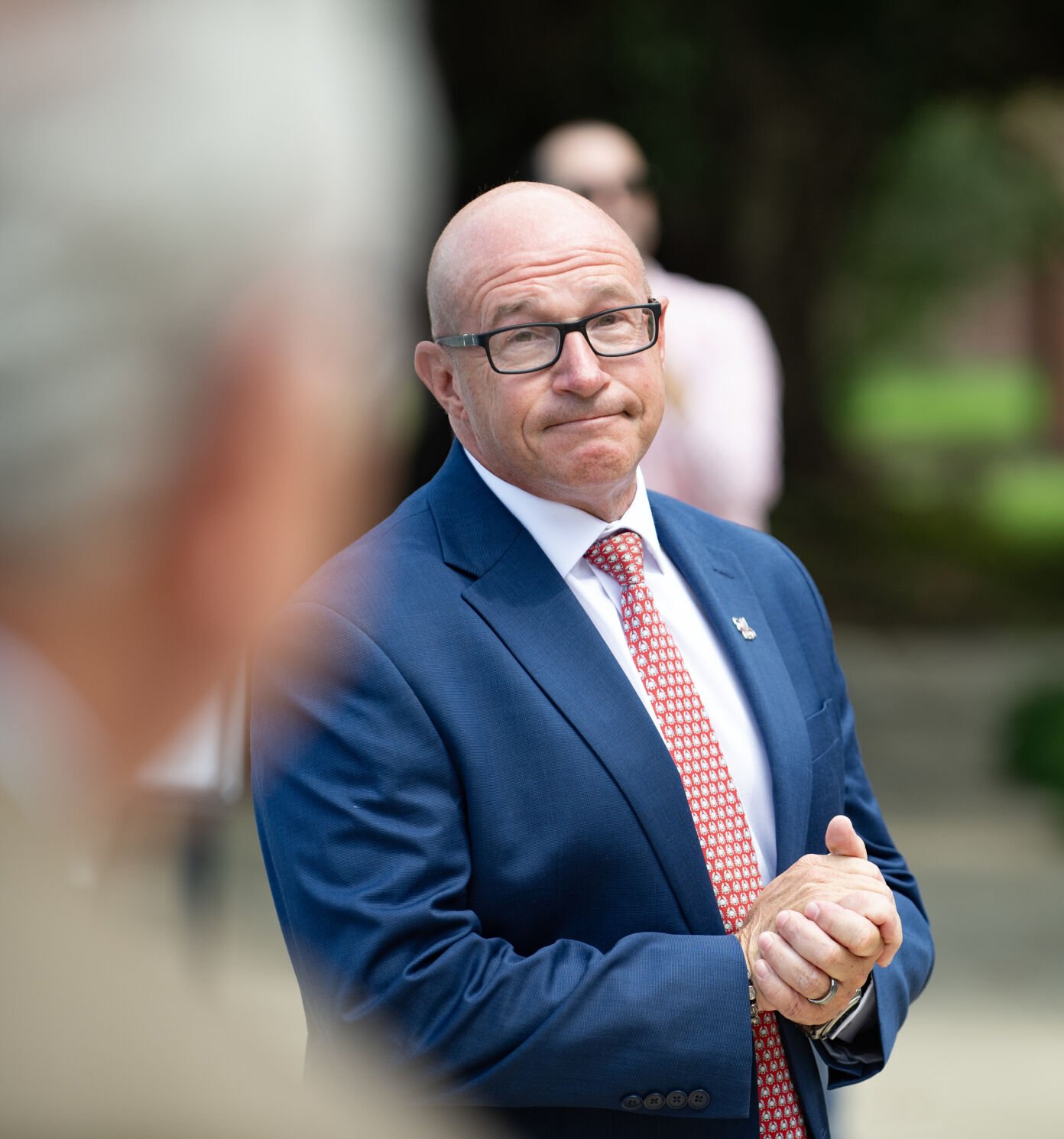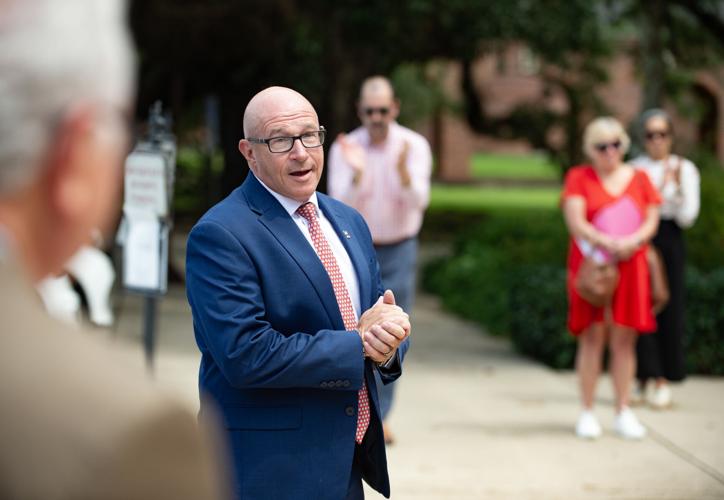In his first address to University of Louisiana at Lafayette stakeholders, interim president Jaimie Hebert said the administration's top two priorities are fiscal stability and process efficiency.
"We have to take this opportunity at this time of transition to get our house in order," he told faculty, staff and local leaders during the state of the university speech Thursday.
"We understand our destination, but we need to get our course plotted properly."
Hebert was named interim last month after President Joseph Savoie announced he was stepping down after leading the school for 17 years. Savoie now serves as the university's president emeritus.
During the state of the university address, Hebert spoke about the school's finances. He said the school has been spending more than its revenues, an issue that can't be blamed on any one person.
It's an issue that affects virtually any organization or company "that moves at the pace we've been moving," Hebert said.
He shared a pie chart that showed university revenues next to a chart with expenditures. Those charts did not include capital funding used for buildings and maintenance.
About a third of revenue comes from tuition and fees and another third comes from state, federal and non-government grants, which Hebert said matches other universities like UL that have the prestigious Carnegie R1 research status.
The school spends about 60% of its operational budget on salaries and another 15% on travel, scholarships and other expenses that support students. That means about 75% of expenditures "are directly on people," Hebert said.
To immediately address the issue, Hebert said the administration is going to work with budget managers to cut auxiliary and operational spending by 5%. It's something that normally happens as a reactionary measure to balance the budget at the end of the year, Hebert said.
Hebert said the university would not be cutting salaries.
"We are not in a crisis situation," he said. "We have a challenge and it's manageable. It's manageable because of the people in this room."
In addition to addressing the university's finances, Hebert said the administration would focus on creating efficient processes. He said current inefficient processes have caused people to create workarounds, which have created a culture that "drives the fiscal instability challenge that we're having to wrestle with."
"We can fix the fiscal stability with some simple, manageable strategies," Hebert said. "They have to be deliberate and we have to start now."
"But if we don't fix processes at the same time, we're going to find ourselves right back in the same boat."
Hebert said in September the university will host a community conversation that will allow the administration to go deeper into issues that matter most to UL faculty, staff and stakeholders.
"The months ahead will bring change, but it's also going to bring possibility, guided by our strategic plan and its principles," he said. "We have a strong foundation, a clear sense of who we are and the creativity and the determination about where we go next."



